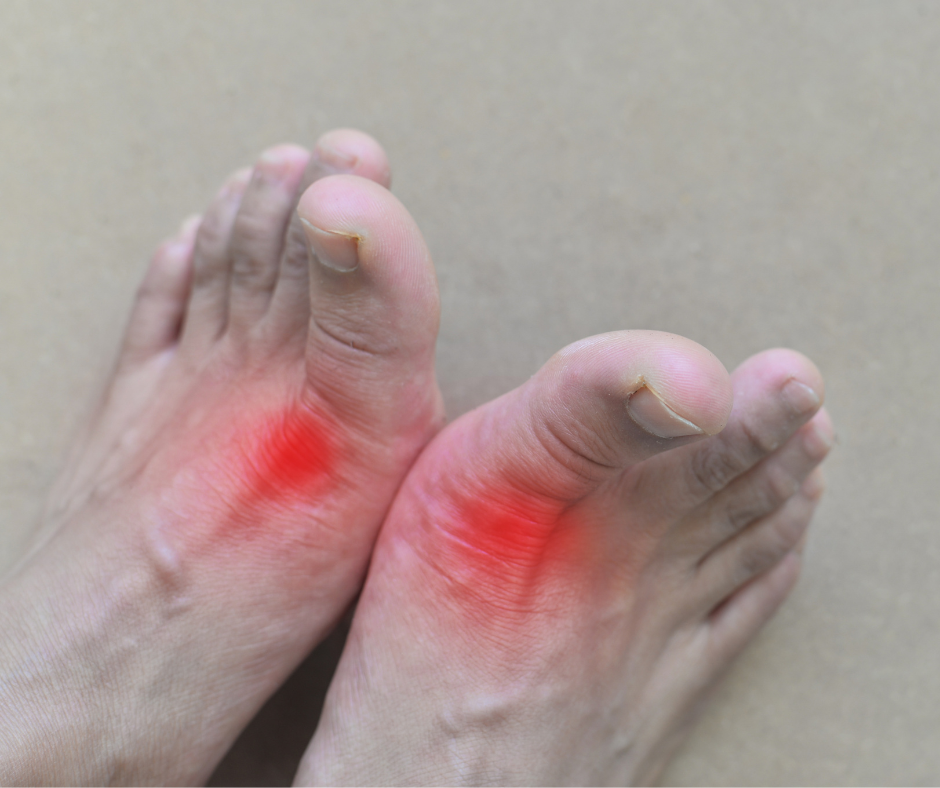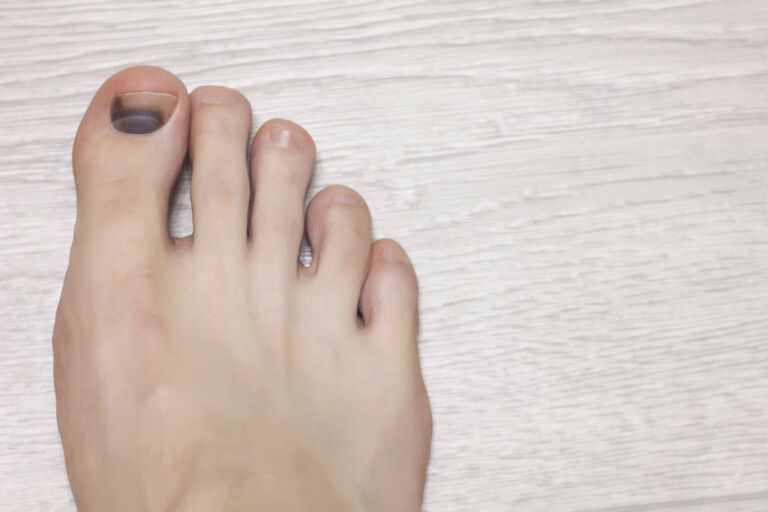What Causes a Gout Attack?

When your big toe suddenly swells up, turns red, and hurts like the devil, get ready to say “hello” to gout. Gout is the most likely culprit when pain and throbbing come on suddenly and very painfully.
It boils down to too much uric acid.
A gout attack happens when you have too much uric acid in your bloodstream. Uric acid naturally occurs in your body, but it’s also a by-product of certain foods that you eat. Your body may produce too much uric acid, or you may be over-indulging in foods and beverages that are high in purines, which the body breaks down into uric acid. The excess uric acid in your bloodstream forms crystals that collect around your soft tissues and joints, very often the joint at the base of your big toe.
What foods are high in purines?
Doctors like board-certified podiatrist Dr. Kenneth R. Wilhelm tend to see more cases of gout during the holiday season. The November and December holidays typically involve feasting on rich foods that contain a lot of purines, such as
- cream sauces
- shrimp, scallops, lobster, and salmon
- red meat
- liver and other organ meats
- beer, wine, and alcohol
- high fructose corn syrup, an ingredient in many processed foods
So, if you avoid these foods, will you also avoid gout? Well, your risk of a gout attack certainly decreases with a healthy diet. But there are other risk factors: gout may run in your family. Gout is more common in men than in women and in people who take certain medications. Finally, your risk increases as you age or if you are obese.
Here’s what to know about gout
- It comes on suddenly.
- It gets worse at night.
- It can last a few hours to a few days.
- One attack usually leads to another.
- Without treatment, it can cause permanent bone, joint, and tissue damage.
- You can prevent gout by maintaining a healthy weight and limiting your intake of trigger foods and beverages. Another way to keep the uric acid crystals away is to drink plenty of water.
Dr. Wilhelm diagnoses and treats gout at our Fairfax County podiatry office. He can prescribe medication and lifestyle changes to manage chronic gout pain. Call Clifton Foot & Ankle Center in Centreville, Virginia, at (703) 996-3000 or contact us online for an appointment.






